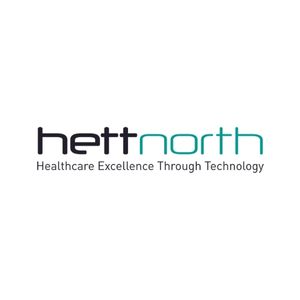More than 600 general practices in the UK are now offering access to new GP record entries as part of a phased rollout benefitting around 2 million extra patients. Hundreds more practices are expected to go live with the scheme over the next three months.
Citizens’ Access Programme background
The NHS England programme is backed by NHS Digital and supports the NHS Long Term Plan commitments to provide patients with digital access to their health records. Patients will be able to read new entries, however, will not be able to see personal information until they have been checked to allow clinicians to contact and speak with patients first.
The programme was initially due for mass roll-out on 1 November 2022; however, the go-live date was delayed due to practices voicing concerns around patient safety. This saw NHS England allowing practices that were not fully prepared for the switch to opt to pause the programme until further notice.
Why are the changes being made?
NHS research shows that increasing numbers of patients want easy access to their health records, including 80% of the 28 million people that currently use the NHS app. Better access to health information enables patients to manage their health more easily and helps to reduce the level of queries to general practice, helping to create a more efficient service.
NHS research suggests that access to electronic patient records has many benefits and helps to improve efficiency by:
- Supporting patients to prepare for appointments by acting as a written reminder.
- Increasing data quality within patient records by enabling patients to flag if they believe the information is inaccurate.
- Providing patients with a better understanding of their health.
- Reducing the burden on GPs in the long term as they will no longer have to manually share this information upon patient request.
Electronic patient records support a patient-centric approach to health and care, leading to better health outcomes and improved patient and staff satisfaction.
What are the challenges?
A group of general practices were given the opportunity to become early adopters and granted online access to their patients ahead of the national switch-on. During this phase, the early adopters implemented access in a similar approach and found that implementing the following actions smoothed the period of adjustment:
- Encouraged advocacy – identify staff who would be champions of the change to drive its adoption by other staff members and patients.
- Provided training – to ensure all staff members had sufficient knowledge of patient data management and redaction.
- Raised awareness – through ongoing communication with staff.
- Restricted access – to patients who were identified as having a serious risk of self harm if they had access to their patient records.
What are the outcomes?
The outcome of the initial rollout has been positive overall, with the early adopters describing how the change has impacted their workload and practice. Some of the key findings include:
Impact on workload
Most early adopter practices reported that they did not see a noticeable increase in their workload, with some practices finding that the change caused a reduction in the size of their workload. This was due to fewer subject access requests from patients, fewer calls from patients requesting test results, and a reduced admin burden on GP and reception staff.
Consultation notes
The recording of information has improved since the rollout as it has encouraged more concise, factual notes and reduced the use of acronyms to provide patients with a clear understanding of their health.
Amending patient records
Early adopters have noted an increase in the number of requests from patients for their records to be amended. The key challenge that stemmed from this is that the general practices weren’t clear on who should be responsible for these amends. This demonstrates that it is key for GP practices to have clear processes in place when it comes to amending patient and service user records.
Visit HETT North on 28th February 2024 to find out more about digital adoption in the NHS
Digital access to patient records is just one of the key digital transformation trends in healthcare this year. This year’s HETT North event is the perfect opportunity to find out more about other key trends and themes in digital transformation in the NHS.
HETT North is taking place on the 28th February 2024 at Manchester Central Convention Complex and is free-to-attend for the NHS, charities, and the wider public sector.
The packed full agenda includes a variety of sessions covering topics that are key during this uncertain economic time.
Register today to secure your place.
.

%20(1).png?width=500&height=58&name=HETT%20insights%20logo%20RGB-04%20(1)%20(1).png)

